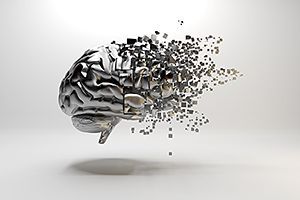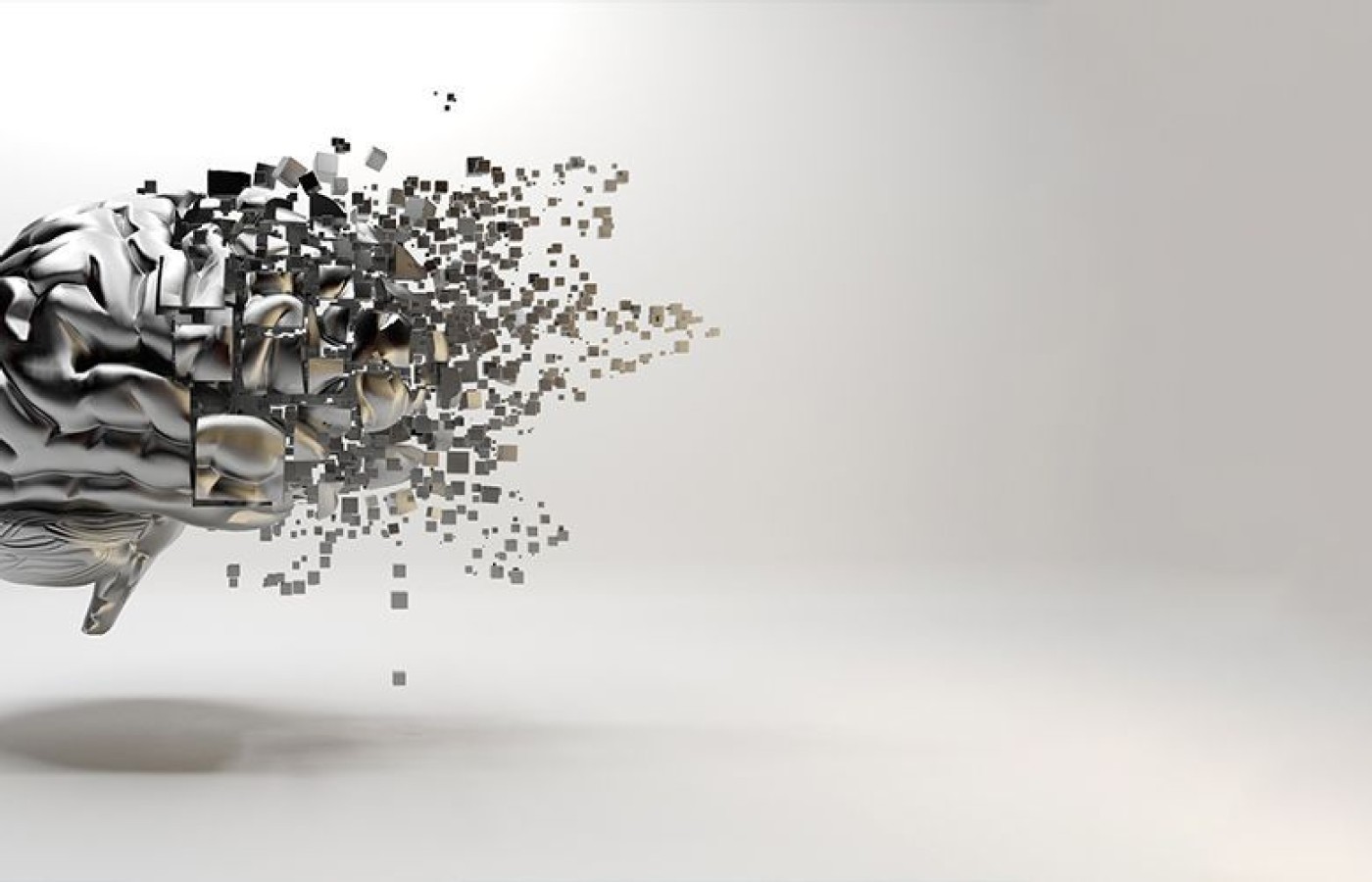The most important relationship I seek to nurture in the treatment room is the one a patient has with their own body. We live in a culture that teaches us to override pain, defer to outside authority, and push through discomfort. Patients often arrive hoping I can “fix” them, but the truth is, we can’t do the work for them. We can offer guidance, insight and support, but healing requires their full participation.
Acupuncture and Alzheimer's Disease
When a new patient walks in the door, how many of us think, I have the honor and privilege of taking care of this patient for rest of his or her life? How many of us think in terms of taking care of this patient for decades? How will we deal with all the changes in their health as they age? Are we prepared for this? What are considered best practices in long-term patient care?
Brain health is of specific interest to me. I believe very few acupuncturists are current on best practices to maintain brain health as we age.
Alzheimer's Facts & Figures
Dementia is an umbrella term describing brain deterioration. It affects language, memory, cognition, emotion and behavior. Alzheimer's disease makes up almost 80 percent of the cases of dementia. Most experts believe Alzheimer's is irreversible and incurable once it has developed. Therefore, the focus moves to preventing it.
The lifetime risk for Alzheimer's dementia at age 45 is approximately one in five (20 percent) for women and one in 10 (10 percent) for men. The risks for both sexes are slightly higher at age 65.1
The Alzheimer's Association's 2019 Alzheimer's Disease Facts and Figures1 reports that brain changes of Alzheimer's may begin as early as 20 years or more before symptoms appear. The precursor step toward Alzheimer's is mild cognitive impairment (MCI). Much research is being done to reduce, reverse or prevent mild cognitive impairment from developing in the first place.

When I first read this report, it really blew me away. It made me think that I need to be offering treatments now that will help all stages of life and that will mitigate health issues down the road.
Western vs. TCM Etymology
As acupuncturists, we are trained to make a differential diagnosis. The two main etymologies of Alzheimer's are phlegm stasis and kidney deficiency. From a Western perspective, Alzheimer's disease is the accumulation of the protein fragment beta-amyloid (plaques) outside neurons in the brain, as well as twisted strands of the protein tau (tangles) inside neurons (phlegm stasis). These changes are eventually accompanied by the damage and death of neurons.
The kidneys store essence to generate marrow and the brain is the sea of marrow. Hence, brain deterioration is also due to kidney deficiency. Therefore, while treating patients for any current problems, we need to be aware of these types of presenting pathologies and encourage patients to continue long-term care to keep their brain healthy. The average patient may be lost, though, if you start talking about phlegm stasis and kidney deficiency. So, it might be best to use some other terminology that is more easily understood.
Prevention: In-Clinic Tips
Blood pressure: I encourage all acupuncturists to do blood pressure checks in their offices, as well as encourage patients to purchase home kits. The SPRINT study2 showed that keeping systolic blood pressure at 120 mmHg was associated with a 25 percent reduction in cardiovascular events, stroke and cardiovascular death. SPRINT MIND, a seven-year sub study within SPRINT,3 showed that the risk of developing MCI was reduced by 19 percent.
Researchers hope to prove in further investigations that by keeping the systolic pressure down for longer periods of time – perhaps a decade or two – it will reduce MCI by a higher percentage and possibly even prevent Alzheimer's.
Menopause: Researchers have shown that the frequency and intensity of hot flashes is correlated with dementia.4 As acupuncturists, we are trained to treat menopause symptoms. Now we can see that not only are we helping alleviate the immediate symptoms, but also helping to hopefully ward off dementia with a non-pharmaceutical treatment. All the more reason to cool down those hot flashes.
Smoking is a high-risk factor for developing Alzheimer's disease and dementia. One study5 showed that smokers over the age of 65 have an over 70 percent higher risk of Alzheimer's than those who have never smoked. As acupuncturists, we offer another reason to quit smoking and can offer smoking cessation treatments.
Herbal medicine: Currently, there are no known herbs to cure dementia. However, ginkgo biloba (Yinxingye) has shown promise in treating Alzheimer's disease, acting as an antioxidant and preventing mitochondrial dysfunction.6 The formula Danggui Shaoyao San also shows promise in ameliorating age-related memory dysfunction.7 Tian Ma Gou Teng Yin also has been scientifically shown to provide neuroprotective and anti-neuroinflammatory effects against the progression of Alzheimer's. As herbalists trained in the Chinese pharmacopeia, we can offer our patients these medicines.
Tai Qi: Tai qi increases neurogenesis and induces angiogenesis to remediate neural cell death and dysfunction in normal aging.8 It also reduces brain inflammation.
TCM Protocols
Although Alzheimer's disease is not currently curable, TCM has much to offer in terms of helping Alzheimer's patients at earlier stages of the disease, as well as possible prevention. I recommend treatment once a week until symptoms stabilize; then try spacing them out. Of course, if the disease progresses and the patient is no longer cognizant of what we are doing, and perhaps even is frightened or belligerent during a treatment, you will have to assess whether or not to continue.
Treatment protocols will be to tonify the spleen, kidney, and lungs, drain damp, move stasis, and nourish heart yin. An analysis of studies shows commonly used acupuncture points that produce results include KD 3, DU 14, CV 17, 12, 6, TW 5, GB 39, PC 6, UB 23, GV 29, SP 6, KD 4, DU 20, and Sishencong.9 I use a variety of these points, as well as occasionally adding in the yin shu points on the back – UB 15, 17, 18, 20, 23, as well as GB 20.
Research shows DU 20 to be an extremely effective point. It reduces levels of oxidative damage to DNA produced by free radicals and improves "calculation ability and short-term memory" as well as stimulating therapeutic correction of personality changes. DU 26 causes improvement in "naming ability and short-term memory."9
Scalp acupuncture also has demonstrated some improvement in Mini-Mental State Examination (MMSE) scores.10 In addition, studies show acupuncture improved the MMSE scores for patients taking the medication Donepezil, thus showing a synergistic effect between Western and Eastern protocols.9
In conclusion, I am encouraging acupuncturists to develop treatment protocols in their offices that will take into account information learned from research. As research guides us on developing best practices in health care, we actually see again and again how TCM has always, and still does, continue to shine as one of the best medicines available for longevity.
References
- Alzheimer's Association. 2019 Alzheimer's Disease Facts and Figures.
- National Institutes of Health, National Heart Lung and Blood Institute. Systolic Blood Pressure Intervention Trial Study (SPRINT).
- Alzheimer's Association. "Alzheimer's Association Funds 2-Year Extension of SPRINT MIND Study." Jan. 28, 2019.
- Zell C. "Milwaukee Area Professors Closer to Preventing Dementia in Women." WTMJ Milwaukee, April 11, 2019.
- Durazzo T, Mattsson N, Weiner M. Smoking and increased Alzheimer's disease risk: a review of potential mechanisms. Alzheimer's & Dementia, 2014 Jun;10(3 Suppl):S122-145.
- Zhao, H., Luo, Y., (2017). Traditional Chinese medicine and aging intervention. Aging and Disease, 2017 Dec;8(6):688-690.
- Liu P, Kong M, Yuan S, et al. History and experience: a survey of traditional Chinese medicine treatment for Alzheimer's disease. Evidence-Based Compl and Alt Med, 2014.
- Chang J, Tsai P, Beck C, et al. The effect of tai chi on cognition in elders with cognitive impairment. Medsurg Nurs, 2011 March-Apr;20(2):63-70.
- HealthCMI. "Acupuncture Benefits Alzheimer Disease Patients." June 11, 2015.
- Zhou J, Peng W, Li W, Liu Z. Acupuncture for patients with Alzheimer's disease: a systematic review protocol. BMJ Open, 2014;4(8).



